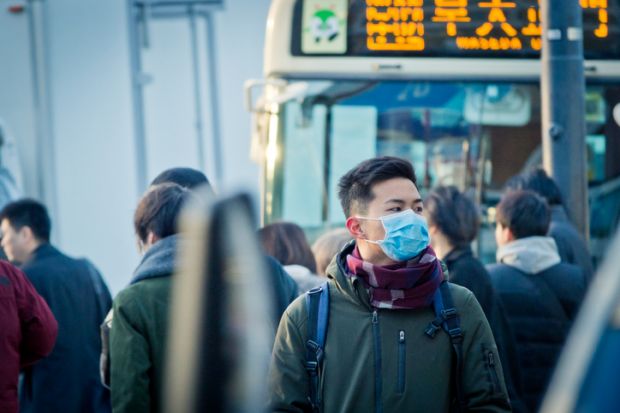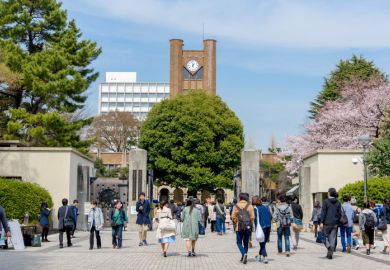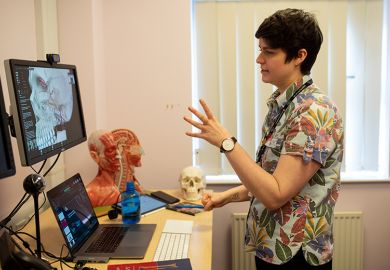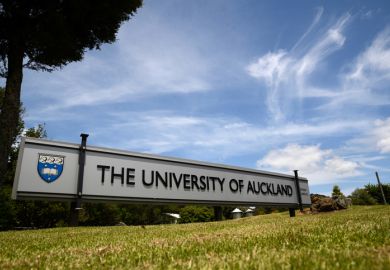The impacts of Covid-19 on Japan’s higher education are similar in many ways to those in other countries. They include the move to online teaching and the difficulties in recruiting international students. But there are also some unique local factors at play.
One is the fact that the country’s academic year begins in April. This lack of coordination with other countries is a long-term bone of contention and the ongoing closure of campuses has led to calls for the start date to be pushed back permanently to September. This would have knock-on effects for companies’ graduate recruitment cycles, too, but the Ministry of Education has declared that it will continue to discuss the possibility cautiously.
Another issue is Japanese students’ particular reliance on part-time jobs to pay their fees, many of which disappeared during the lockdown. A national survey of about 1,200 university students suggested that nearly a quarter are considering dropping out because of financial problems.
In response, the government has developed a series of financial support programmes for university students. This includes one offering handouts of ¥100,000 (£740) to international students, many of whom are especially reliant on jobs to keep them financially afloat. Recently, the government has developed an additional policy to extend ¥200,000 (£1,480) to international students in Japan provided that they have a grade point average of at least 2.30. Visa restrictions have also been loosened for international students, especially those who graduated from Japanese universities and colleges by March.
Individual universities have also adopted their own student support measures. The University of Tokyo is one of a dozen institutions offering some form of financial support. Students in difficulty due to the loss of a part-time job or a sudden changes in their family’s finances may claim ¥50,000, as well as an extension of their tuition fee payment deadline – or even an exemption.
Meanwhile, Waseda University, one of the top private universities, is offering ¥400,000 emergency scholarships. And other universities have promised to reduce tuition fees for those affected by Covid-19.
However, lots of Japanese universities have not implemented any such measures. One important reason might be that all the national universities and nearly 90 per cent of local public universities have become independent corporations. This, combined with a continual decline in national and local public funding since 2004, means they need to generate revenue through diversified sources.
This is especially true of private universities and colleges, which constitute nearly 80 per cent of the Japanese sector and accommodate a huge number of international students. Since they rely on tuition fees for about 80 per cent of their overall income, the vast majority are unable or unwilling to reduce – let alone waive – them.
A national survey released by a national newspaper in April found that more than 60 per cent of faculty are worried about the current situation and the future of university education and their own academic work. And another survey, conducted by a national university, revealed that almost all faculty are worried about the quality of their online teaching and their supervision of postgraduates. About half of faculty and students are stressed about the use of online teaching, learning and research; for staff, this partly relates to the unexpected time and effort involved in preparing lectures.
Despite the difficulties of foreseeing the future amid an ongoing pandemic, it is clear that if the worst impacts of Covid-19 on Japanese higher education are to be avoided, both the government and institutions need to provide academics, administrative staff and students with systematic and long-term strategies regarding their activities and responsibilities. For example, Japan’s universities need to establish frameworks to identify risk and manage uncertainty, in order to minimise potential negative impacts and improve the likelihood of beneficial outcomes.
Secondly, more comprehensive and effective support – both academic and financial – must be provided to all categories of students by the government, universities and the private sector. Thirdly, university faculty and researchers should play more active and influential roles in gaining public trust for universities by promoting scientific knowledge of Covid-19, such as via social media, as well as facilitating research in their fields that will have an impact on recovering from the pandemic.
Most importantly, however, it is necessary for universities, academics and students not only to get used to new ways of doing teaching, research and administration, but also to make more creative efforts to address the impact of Covid-19 on higher education. For example, they could reconsider whether internationalisation must involve the movement of students and academics across national borders, and work out new forms of global collaboration in teaching and research. And they could adopt a wider range of modes of instruction, integrating traditional lectures with digital learning platforms, video lessons or Moocs.
There are no guarantees in a situation like this, but experiments like these may just protect Japanese universities against the worst ravages of the virus.
Futao Huang is a professor at the Research Institute for Higher Education at Hiroshima University and co-investigator on the Centre for Global Higher Education’s global higher education engagement research programme.
Register to continue
Why register?
- Registration is free and only takes a moment
- Once registered, you can read 3 articles a month
- Sign up for our newsletter
Subscribe
Or subscribe for unlimited access to:
- Unlimited access to news, views, insights & reviews
- Digital editions
- Digital access to THE’s university and college rankings analysis
Already registered or a current subscriber? Login








